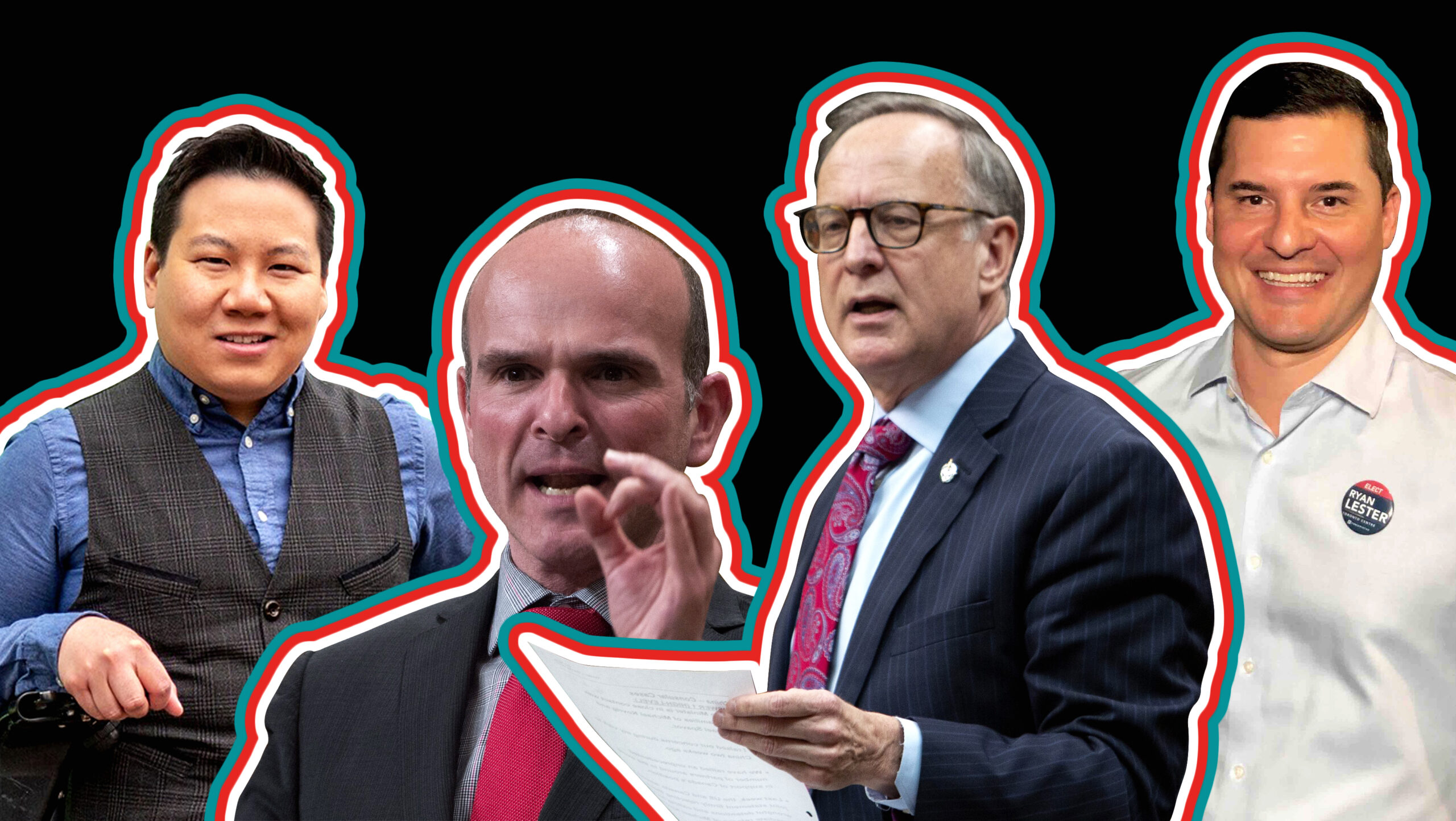To get Xtra Weekly in your inbox, subscribe here.
WEEKLY EXPLAINER
Nine Canadian LGBTQ2 groups organized Proud to Vote, a series of town halls across the country, where the four major political parties were invited to discuss issues like immigration, health, foreign policy, justice and social development from a queer perspective. And friend, we have some juicy takeaways from the events in Toronto, Vancouver, Edmonton and Ottawa.
Sis, tell me more. Three debates were held on Tuesday, Oct. 8, in Toronto, Vancouver and Edmonton.
The candidates in Toronto—Brian Chang of the NDP, Ryan Lester of the Conservative Party, Nicki Ward of the Green Party, and Rob Oliphant of the Liberal Party—discussed the future of laws surrounding criminalization of HIV non-disclosure, supports for queer refugees and healthcare for trans folks. Here are some of the highlights from Toronto:
Lester said he voted for the Liberals in 2015, but was disappointed with what he said were the empty promises and a lack of change—so he decided to run against them under the Conservative party. He said he supports LGBTQ2 arts and heritage but emphasized he does not support the ban of uniformed police at Pride.
Oliphant said he believes Canada should decriminalize drugs. He later clarified that it is not the Liberal party’s policy, but his own view.
Ward pledged to fight for trans rights. Despite it being illegal to discriminate against trans people, she said she continues to see other trans people dying of preventable issues. She asked: “How is this happening in one of the richest countries in the world?”
Chang said his party aims to fund services to improve the quality of life for LGBTQ2 refugees. He said services need to be funded on a federal level and distanced from churches and other religious groups.
When he answered the question about the criminalization of HIV non-disclosure, Chang said it should be a public health issue and added, tbh, the statement of the night. “We want people to be healthy and we want people to have great sex.” And the other candidates agreed.
And oh, you can watch the Toronto debates here.
In Vancouver, David Cavey of the Conservative Party, Jesse Brown of the Green Party, Hedy Fry of the Liberal Party and Breen Ouellette of the NDP also tackled LGBTQ2 issues this election. However, some attendees said they were disappointed because trans issues and those important to queer people of colour weren’t addressed in the debate.
In a Facebook comment, Imtiaz Popat said, “[I’m] disappointed that transphobia was not addressed, nor were POC issues. Our issues were not discussed because political parties are not addressing our issues and independents who are addressing the issues were kept out.”
In Edmonton, Randy Boissonnault (Liberal), Katherine Swampy (NDP), and Michael Kalmanovitch (Green) also talked about the future of LGBTQ2 issues. The Conservative Party declined to send a representative. Boissonnault called out the absence, “Look at this stage. In 2019 the Conservative Party of Canada cannot field one candidate from Alberta to come and talk about queer issues.”
Here are some of the highlights from the Edmonton debates.
Swampy focused on the NDP’s promise to expand universal healthcare to include mental health services. She said this would help address health issues in the LGBTQ2 community. She also said that her party, if elected, plans to remove blood ban on men who have sex with men. She called the policy “old and outdated.”
Boissonnault pointed to his work this past term helping to conduct a comprehensive study on LGBTQ2 health. He said, if elected, his party would work with provinces to implement every recommendation in that report.
During Wednesday’s town hall in Ottawa, Oriana Ngabirano (Green), Rob Oliphant (Liberal) and Konstantine Malakos (NDP) all took to the floor. But, as in Edmonton, there was no representative from the Conservative Party. Here are some of the notable things that happened during the debate as tweeted by Fae Johnstone, Xtra contributor and the night’s debate moderator:
Malakos said 12 percent of NDP candidates identify as LGBTQ2. Ngabirano said, “Trans violence is a crisis that requires an action plan with a consultation. We will sit down with trans members of our community and will do that immediately.”
Oliphant said his party’s priorities for the trans community are “employment, poverty, housing and stigma.” He said this “requires real leadership” and that “we have a prime minister (Justin Trudeau) that does the work that needs to be done.”
What’s next? The last Proud to Vote event will happen in Montreal on Tuesday, Oct. 15.
Wait, there’s more! Click here to subscribe to Xtra Weekly for roundups of LGBTQ2 news, culture and stories.



 Why you can trust Xtra
Why you can trust Xtra


